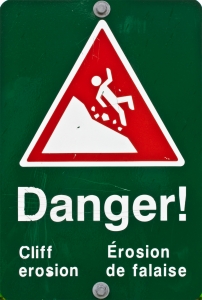

SOFTWARE freedom is being jeopardised by the rising influence of patent cartels. One must not take for granted or for certain the triumph of Android, which enjoys an economic advantage. Hardware makers tend to favour Android because it is a free platform which also offers many features. Android can compete with Blackberry, Symbian, and iPhone/iOS not just because of cost but also the growing impact and inertia. Its vast repository of applications, for example, would not have been possible without the cost advantage; it is a chicken-and-egg scenario.
"This illustrates the sort of loophole that exists in the system, allowing big corporations to just harass their competitors without being sued back or even deterred by other patent arsenals."Realising that they react too late to the growing importance of Android, the oligarchy of Nokia, Apple and Microsoft now holds onto software patents. They are trying to diminish Android's cost advantage and also make it more expensive than already-pricey proprietary platforms (often tied to particular hardware/phones). Apple has been suing with goal of embargo, Microsoft has been suing mostly with goals of taxation and extortion/intimidation, and Nokia has just had a Microsoft mole installed. This mole has just passed thousands of patents to a patent troll, MOSAID, to attack Android while he spreads yet more FUD about Android. Nokia would like it to look like it is the troll -- not Nokia -- which is behind the patent attacks. This illustrates the sort of loophole that exists in the system, allowing big corporations to just harass their competitors without being sued back or even deterred by other patent arsenals.
The patent reform which the press speaks about these days is somewhat of a sham because it does not resolve the problems mentioned by those who have been calling for a patent reform. It is not entirely clear why the real problems are getting swept under the rug, unless of course one departs from the supposition that those in charge do not serve public interests. Here is a new AFP article which says about the exiting reform that is misses the point for the following reason (among others):
Endpoint Technologies Associates' Kay said consideration should be given to doing away with software patents altogether.
"People patent any old thing and they repatent things that are already patented," he said. "Really we should be going 180 degrees in the other direction and saying 'How about no patents for software?'"
"Protectionism and monopoly are not good for the public, but it is exceptionally beneficial to some people with a lot of money and power."James Love, who has been busy in recent days looking at Cablegate cables just as we did, claims that "In #TPPA negotiation, White House wants negotiating text secret from public, but available to governments and big firms" (underlining the problem with the existing process).
According to other sources, patent firm "Jurasoft gives 20.000 EUR to German Pirate Party, while filing for software patents in DE: http://t.co/2Q5CYDY http://t.co/KVUcQCy" (as noted by Benjamin Henrion). Will this influence The party's policies? It is not unusual for us to see groups that proclaim to represent public interest while in fact doing the opposite.
We remain hopeful that in this anti-competitive mess which puts Linux in danger there will be enough involvement from the public -- not large corporations -- which will result in elimination of software patents. Protectionism and monopoly are not good for the public, but it is exceptionally beneficial to some people with a lot of money and power. Their lucrative patent market is the embodiment of their entitlement. By crushing it, the public can take more power back from those who influence politics in private. ⬆
Comments
saulgoode
2011-09-12 23:58:50
The Cato Institute has submitted a well-written amicus brief (PDF) which attributes much of the problems of medical process, business method, and software patents to the Federal Circuit Court of Appeals failing to intepret patent law as it was written by Congress and as it has historically been followed by the Supreme Court.
The American Civil Liberties Union has also submitted an amicus brief which I presume comes down on the side of abrogating these patents, but I have not yet had the chance to peruse it.
Hopefully, this time the Supreme Court -- especially in light of the recent litigation frenzy taking place -- will step up and provide an authoritative decision which abolishes these asinine patent grants.
Jose_X
2011-09-14 11:52:30